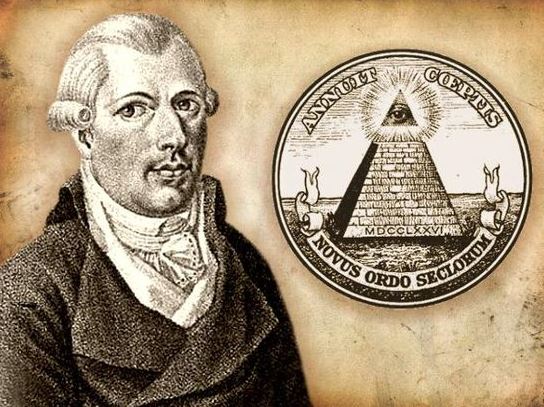Adam Weishaupt (1748–1830) was a German philosopher and professor of law, best known for founding the Bavarian Illuminati. His ideas and the secret society he established have become subjects of fascination and controversy, influencing various conspiracy theories and discussions about the role of secret societies in history.
Early Life and Education
1. Birth and Background
Adam Weishaupt was born on February 6, 1748, in Ingolstadt, Bavaria (now part of Germany). He came from a well-educated and intellectual family; his father was a professor of law and philosophy. Weishaupt’s early exposure to academic environments significantly influenced his intellectual development.
2. Academic Pursuits
Weishaupt enrolled at the University of Ingolstadt at the age of 15, where he studied law and philosophy. His academic career was marked by a keen interest in Enlightenment ideas, which emphasized reason, secularism, and the questioning of traditional authorities. Weishaupt’s intellectual background laid the foundation for his later philosophical and political ideas.
Founding of the Illuminati
1. Formation of the Illuminati
On May 1, 1776, Adam Weishaupt founded the Order of the Illuminati, a secret society that aimed to promote Enlightenment ideals and challenge the influence of religious and political institutions. The society was initially known as the “Order of Perfectibilists” but was soon renamed the Illuminati, derived from the Latin word “illuminatus,” meaning “enlightened.”
The Illuminati was founded with the goal of promoting rationalism, secularism, and the principles of the Enlightenment. It sought to recruit influential individuals who shared its ideals and to create a network of like-minded thinkers who could effect social and political change.
2. Goals and Objectives
The Illuminati aimed to challenge the existing social order and promote a more rational and enlightened society. Its objectives included the promotion of liberty, equality, and the separation of church and state. The society’s members were expected to work towards these goals through secretive and strategic means, using their influence to foster progressive change.
Controversies and Suppression
1. Rise of Conspiracy Theories
The secretive nature of the Illuminati, combined with its revolutionary ideals, led to widespread speculation and conspiracy theories. Many accused the society of plotting to overthrow governments and disrupt societal norms. These theories were fueled by the society’s clandestine operations and its opposition to established institutions.
2. Government Crackdown
The Bavarian government, alarmed by the perceived threat posed by the Illuminati, began to crack down on the society in the late 1780s. In 1785, the Bavarian Elector, Karl Theodor, issued a decree banning secret societies, including the Illuminati. Weishaupt was dismissed from his university position and went into exile.
Later Life and Legacy
1. Exile and Final Years
After his expulsion, Adam Weishaupt lived in various locations across Europe, including Regensburg and Gotha. He continued to write and publish on philosophical and political subjects but was largely removed from the public eye. Weishaupt spent his final years in relative obscurity and died on November 18, 1830, in Gotha.
2. Impact and Influence
Adam Weishaupt’s legacy is a complex one. While the Illuminati was short-lived and largely disbanded, its name and ideas have persisted in popular culture and conspiracy theories. The society’s emphasis on Enlightenment principles and its challenge to traditional authorities have made it a symbol of revolutionary thought and anti-establishment sentiment.
The term “Illuminati” has become synonymous with various conspiracy theories alleging a hidden, powerful group manipulating global events. These theories often exaggerate the influence and intentions of the original society.
Adam Weishaupt was a significant figure in the history of secret societies and Enlightenment thought. His founding of the Bavarian Illuminati reflected his commitment to rationalism and reform, but the society’s secretive nature and revolutionary goals led to widespread controversy and conspiracy theories. Despite its brief existence, the Illuminati’s impact on historical and popular narratives continues to intrigue and inspire discussions about the intersection of secret societies and global affairs.




